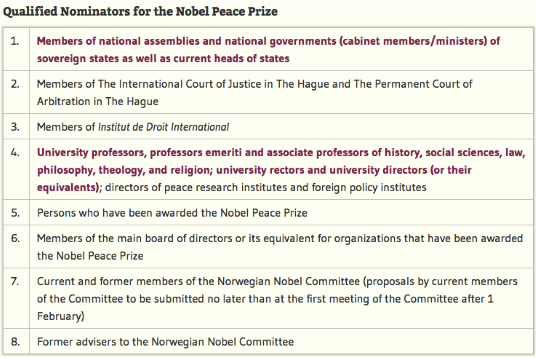Awards Nomination Process
To successfully manage the awards nomination process, you should be able to fit most of the organisational work into a limited timeline. When it comes to criteria management, nomination letters, and email blasting, losing some of the important details in the shuffle is easier than you think.
Failure to plan the flow of nomination management processes can cause many problems during the implementation stage. To help you nail the planning part, we looked into the employee recognition program established by Amherst College in 2012 and used their insights to create a short guide on how to manage the nomination process for awards events.
Nomination process: What and how
The process of nominating is selecting candidates for an award or bestowing a specific award. Through multiple tasks and responsibilities, the process covers two major stages: nominee outreach and the collection of applications. In other words, the task of an organiser is to choose people who could possibly participate, reach out to these people, clarify the terms, and manage feedback.
Who can nominate
The big question for many reward program organisers is who gets to pick the candidates. Depending on the setting and event format, you can gather a professional committee, assign the task to a qualified professional, or set up a peer nominating process. Usually, nominees are selected by people who have extensive expertise in the target industry or fit with the theme of an awards event.
For events of regional or global importance, those doing the nominating should go through a selection process to be qualified, and there is usually a wide range of professionals from different target groups who end up in the nominating committee. Check out the list of those who were qualified to nominate Nobel Peace Prize candidates in 2016:

A step-by-step nomination process
The point of any nomination process is selecting people who have made a significant contribution to an organisation, project, industry, or another setting. Since nominations lie at the core of any successful awards program, the selection process can be a scrupulous endeavour. Following are awards nomination process guidelines that should help you accomplish your goals.
Dive into nomination criteria

Decisions are based on a set of criteria that define the profile of a nominee. Without first knowing the criteria, you can’t understand how to meet the expectations. The reality is, nominees don’t always know the criteria that the committee will use during the evaluations process; they are only informed about the key requirements. To enhance your chances for success, try to think about possible criteria from the organisers’ perspective. Here is what awards event committees usually do to establish criteria:
- They will ask industry/company leaders to develop the goals for the program and will then align these goals with the nomination process.
- Often organisations run surveys before starting the nomination process. This helps them craft a targeted nominee profile.
- When it’s an employee recognition program, organisers often build criteria with a focus on KPIs to deliver measurable value to the participants.
Preparing a nomination package
Once you have clear expectations, you can start working on your winning strategy. A nomination package that describes the qualifications of a nominee is the key part of the show in this case. Here are some tips on how to write a compelling nomination letter:
- Craft a reasonable value statement. To be selected, one should first prove he or she can make a valuable contribution. Tap into any previous award experiences, explore current trends, and make sure you understand what the program is about to ensure your nomination letter resonates with these principles.
- Have someone who can speak for you. Once you are done with your research, think about a strong back-up for your candidate. Influential recommendations and references can add substantial value to a nomination letter.
- Double check the requirements. Even with an Oscar-worthy nomination, a candidate won’t be successful if his or her application doesn’t fit into the context of an award. Therefore, before sending your application over, compare your nomination letter against the criteria.
Supporting documents
Thanks to software for nominations management, organisers no longer have to worry about thousands of submissions and documents flowing in. To make sure they have sufficient information about a candidate, many organisations require the submission of extra documents, which might include any of the following:
- Letters of support or testimonials
- Photos or videos
- Cover letter and/or CV
- Special certifications, diplomas, and other documents that prove your expertise
If the documents are submitted online, it’s critical to ensure that all files are readable. Convert photos and videos into a single format, comply with formatting requirements (if there are any), and make sure the total file size doesn’t exceed the limits.
Nominee profile

If your nomination package worked out well for you and you are now a nominee, there is both good and bad news. The good news is that you are one step closer to winning an award. Woohoo! But if you are already resting on your couch, excited about the results, we must disappoint you—there’s still some work to do.
Often after the final candidates have been selected, they get another challenge to deal with: nominee profile submission. Basically, that’s the part where an organiser steps in and asks nominees targeted questions about their expertise, goals, and achievements. Here are the final hacks that should help you go from being a nominee to a winner:
- Be mindful of the word limit. If it’s not indicated explicitly in the form, try to limit each of your responses to 300 words.
- Do your best to submit the profile at least 24 hours before the deadline. This will help you ensure that you don’t fall into the trap of any tech breaches or time zone inconsistencies.
- Tell the truth. If you don’t possess the skills or expertise required, just be honest about it. In the end, you want to win the award for who you are, not for who you are pretending to be.
Conclusion
A well-organised nomination selection process is necessary for a successful awards event. We hope that this guide and our awards planning system will help you choose the right words for your next nomination letter as well as align your nomination package with the goals of the event.
